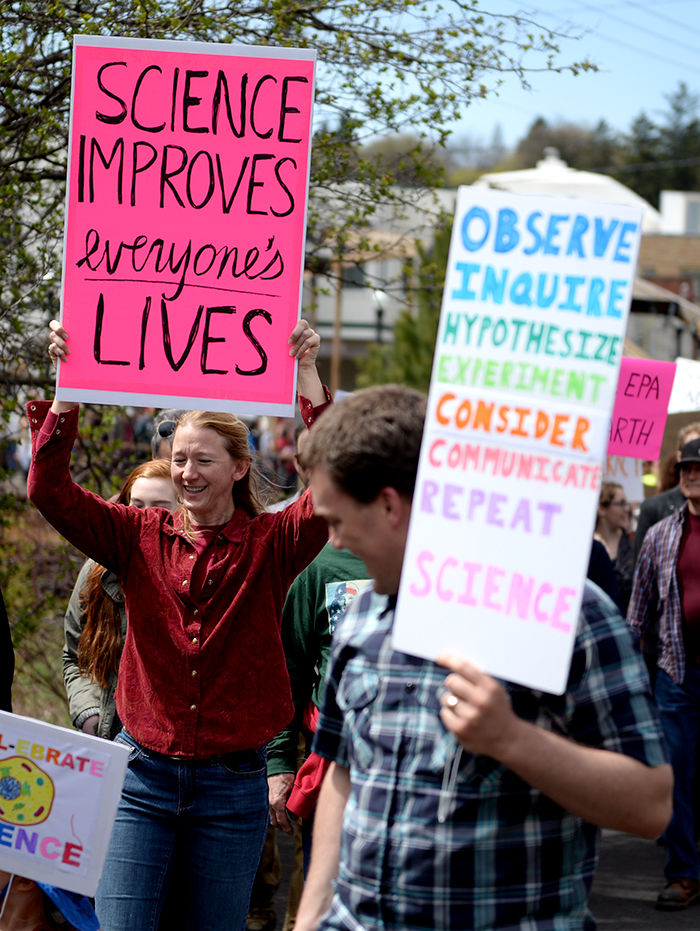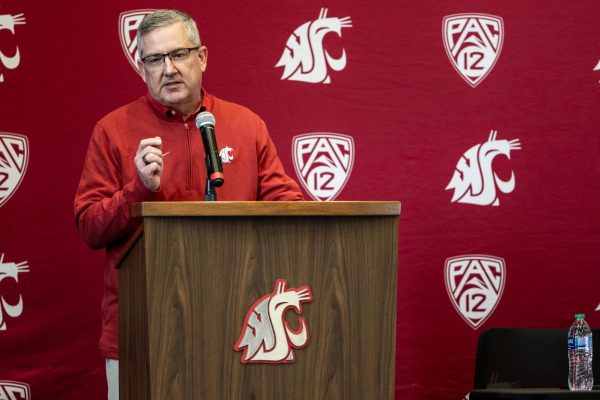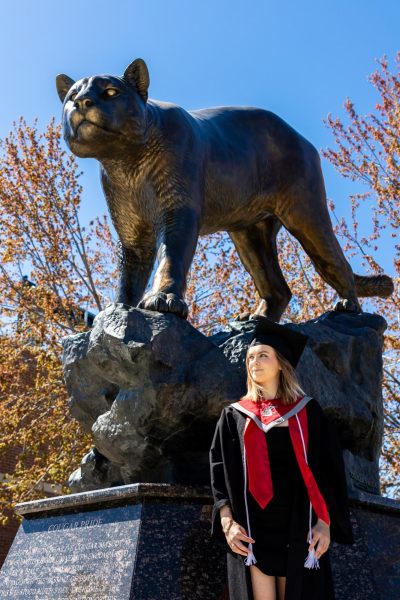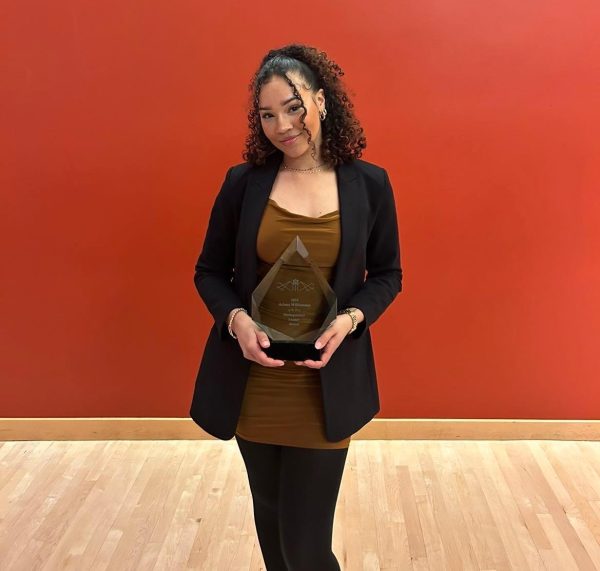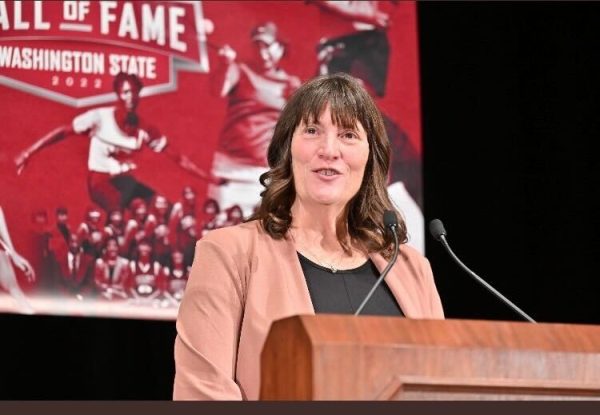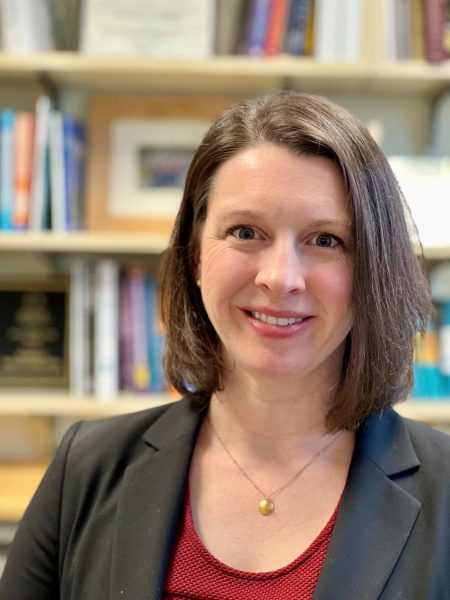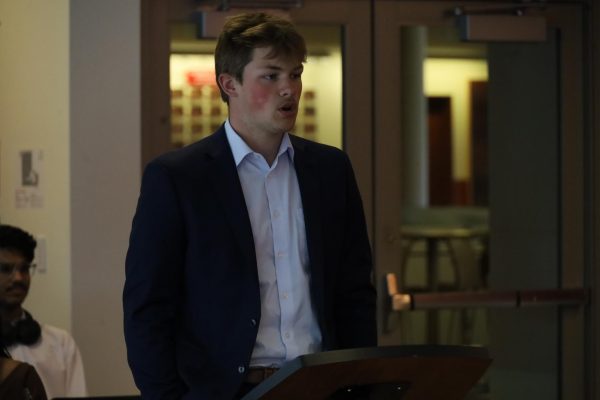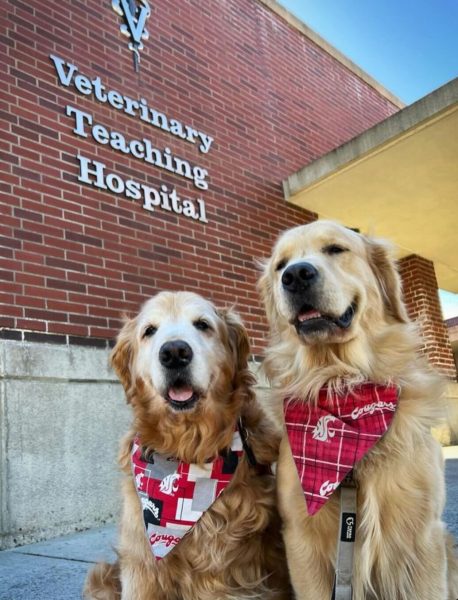Marchers celebrate science
Demonstrators at the March for Science cheered “hey hey, ho ho, alternative facts have got to go” on Saturday while marching from downtown Pullman to Reaney Park.
April 24, 2017
Hundreds of people gathered on Earth Day at Pine Street Plaza, the corner of Pine Street and Main Street in downtown Pullman, to march in celebration of science.
Hannah Liss, outreach and natural resource specialist at the Palouse Conservation District and one of the speakers at the event, said she was not surprised by the turnout, considering the two local universities. Similar marches took place in more than 600 cities across the country on Saturday, as part of the national movement to urge politicians to enact policy based on scientific evidence.
“For me,” Liss said, “the March for Science was a way to spread a message that a large part of the community respects and prioritizes science as it is integrated so intensely within our daily lives.”
She said science helps people understand the world around them, improves community well-being and inspires creativity and innovation.
The local march advocated for scientific research on the Palouse, according to the March for Science news release.
“Science is about investigating truths, not twisting reality into a facade meant to benefit political or industry agendas,” Liss said. “We need a government and culture that continues to facilitate scientific advancements, not one that stifles and discredits the hard work of the scientific community.”
Liss said she was happy the demonstration took place on Earth Day.
“It was also particularly relevant for the current political climate,” she said, “so hopefully that provided a little bit more power for the message.”
She said she hopes community members continue to give financial support to scientific agencies, as this is important for a wide range of U.S. citizens.
“Already, we have seen the current president attempt moves to make serious cuts in funding for some incredibly important agencies,” Liss said.
She listed the National Oceanic and Atmospheric Administration, Environmental Protection Agency and the Department of Energy as some of those losing funding. Liss said if financial support continues, there will not be as much of a risk over the next few years.
“There are lots of conservation projects that rely upon government funding that could be squashed,” Liss said, “many of which have some super important focuses such as soil health, water quality and habitat availability.”
Guy Worthey, associate professor of physics and astronomy, Larry Fox, professor of veterinary medicine and animal science, and Von Walden, professor of civil and environmental engineering, also spoke at the event.
The national organizational committee for the March for Science movement helped coordinate and schedule the demonstration.
“I just really hope that the community continues to fight for what they believe in,” Liss said, “and show the overwhelming support they’ve shown thus far.”


